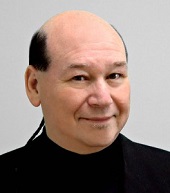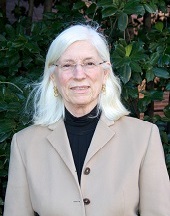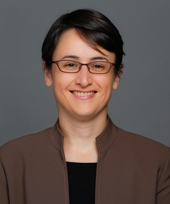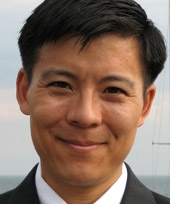Main menu
- People
- Curriculum & Programs
- Events
- TIP Group
- Archives
- Sponsors
- Contact

Dr. Hoffert is Chair of the Bell Broadcast and New Media Fund, Chair of the Screen Composers Guild of Canada, Chair of the Glenn Gould Foundation Inc., and Professor of Music, Law, and Information Science at University of Toronto. He is former Faculty Fellow at Harvard University Law School, President of the Academy of Canadian Cinema, Chair of the Ontario Arts Council, and a founder of the Canadian Independent Record Production Association (CIRPA).
By the time he was twenty-six, Dr. Hoffert was an established jazz recording artist, television performer, off-Broadway musical author, and film composer. He founded Lighthouse, a rock band with horns and strings that sold millions of records, toured the world and earned three Juno Awards as Canada’s #1 rock band. He was inducted into the Canadian Rock and Roll Hall of Fame and continues to perform with Lighthouse and his jazz ensembles.
In the 1970s and ‘80s Hoffert focused on composing film and television music, earning him the San Francisco Film Festival and three SOCAN Film Composer of the Year awards. His concert music includes a Juno-award winning violin concerto.
Dr. Hoffert has parallel achievements in science and technology. He was a researcher at the National Research Council of Canada and Vice President of DHJ Research, where he invented digital audio algorithms, microchips, and musical instruments. In 1992, he founded CulTech Research Centre at York University where he developed advanced new media such as digital video telephones and networked distribution of CD-ROMs. From 1994 to 1999, he directed Intercom Ontario, a $100 million trial of the world’s first broadband-connected community that landed him on the cover of the Financial Post and in the Wall Street Journal.
See vitae for more information.
 Professor Knop writes on public and private international law, with a focus on issues of interpretation, identity and participation. Her book Diversity and Self-Determination in International Law (Cambridge: Cambridge University Press, 2002) was awarded a Certificate of Merit by the American Society of International Law in April 2003. She is the editor of Gender and Human Rights (Oxford: Oxford University Press, 2004) and co-editor of Re-Thinking Federalism: Citizens, Markets and Governments in a Changing World (Vancouver: University of British Columbia Press, 1995), as well as the author of a number of journal articles and book chapters. Professor Knop recently edited a symposium issue of Law and Contemporary Problems on “Trandisciplinary Conflict of Laws” with Ralf Michaels (Duke) and Annelise Riles (Cornell).
Professor Knop writes on public and private international law, with a focus on issues of interpretation, identity and participation. Her book Diversity and Self-Determination in International Law (Cambridge: Cambridge University Press, 2002) was awarded a Certificate of Merit by the American Society of International Law in April 2003. She is the editor of Gender and Human Rights (Oxford: Oxford University Press, 2004) and co-editor of Re-Thinking Federalism: Citizens, Markets and Governments in a Changing World (Vancouver: University of British Columbia Press, 1995), as well as the author of a number of journal articles and book chapters. Professor Knop recently edited a symposium issue of Law and Contemporary Problems on “Trandisciplinary Conflict of Laws” with Ralf Michaels (Duke) and Annelise Riles (Cornell).
Visit Prof. Knop’s Faculty page to see a select list of her recent publications.
 Margaret Jane Radin is Henry King Ransom Professor of Law at the University of Michigan Law School. She is Faculty of Law Distinguished Research Scholar at the University of Toronto, where she serves on the Faculty Advisory Group for the Centre for Innovation Law and Policy. Prof. Radin is coauthor of a casebook, Internet Commerce: The Emerging Legal Framework, Second Edition (Foundation Press, 2005, latest Supplement 2012). Her most recent book is Boilerplate: The Fine Print, Vanishing Rights, and the Rule of Law (Princeton University Press, 2012), which explores the problems posed for the legal system by adhesion contracts and how those problems might be ameliorated. Prof. Radin also has written two books exploring the problems of propertization: Contested Commodities (Harvard University Press, 1996) and Reinterpreting Property (University of Chicago Press, 1993). She has taught at Stanford University, the University of Southern California, Harvard University, University of California at Berkeley, New York University, and Princeton University, where she was the inaugural Microsoft Fellow in Law and Public Affairs. Prof. Radin is a Fellow of the American Academy of Arts and Sciences. She received her AB from Stanford, where she majored in music, and her MFA in music history from Brandeis University. She was advanced to candidacy for the PhD in musicology at UC Berkeley before she changed her career path to law and received her JD from the University of Southern California in 1976. She is a serious amateur flutist who welcomes opportunities to play music with others.
Margaret Jane Radin is Henry King Ransom Professor of Law at the University of Michigan Law School. She is Faculty of Law Distinguished Research Scholar at the University of Toronto, where she serves on the Faculty Advisory Group for the Centre for Innovation Law and Policy. Prof. Radin is coauthor of a casebook, Internet Commerce: The Emerging Legal Framework, Second Edition (Foundation Press, 2005, latest Supplement 2012). Her most recent book is Boilerplate: The Fine Print, Vanishing Rights, and the Rule of Law (Princeton University Press, 2012), which explores the problems posed for the legal system by adhesion contracts and how those problems might be ameliorated. Prof. Radin also has written two books exploring the problems of propertization: Contested Commodities (Harvard University Press, 1996) and Reinterpreting Property (University of Chicago Press, 1993). She has taught at Stanford University, the University of Southern California, Harvard University, University of California at Berkeley, New York University, and Princeton University, where she was the inaugural Microsoft Fellow in Law and Public Affairs. Prof. Radin is a Fellow of the American Academy of Arts and Sciences. She received her AB from Stanford, where she majored in music, and her MFA in music history from Brandeis University. She was advanced to candidacy for the PhD in musicology at UC Berkeley before she changed her career path to law and received her JD from the University of Southern California in 1976. She is a serious amateur flutist who welcomes opportunities to play music with others.
 Mariana Mota Prado, LLB (University of Sao Paulo) 2000, LLM (Yale) 2002, JSD (Yale) 2008, is an Associate Professor at the Faculty of Law of the University of Toronto. In 2004, she worked for the Private Participation in Infrastructure Database Project at the World Bank, and in 2005 she was a fellow of the Olin Center for Law, Economics and Public Policy at Yale Law School. In 2004-2006 Mariana was tutor-in-law at Yale Law School. From 2000 to 2007, she was a researcher for the Law and Democracy Project, Brazilian Center of Analysis and Planning (CEBRAP) in Brazil. Her scholarship focuses on law and development, infrastructure regulation and administrative law.
Mariana Mota Prado, LLB (University of Sao Paulo) 2000, LLM (Yale) 2002, JSD (Yale) 2008, is an Associate Professor at the Faculty of Law of the University of Toronto. In 2004, she worked for the Private Participation in Infrastructure Database Project at the World Bank, and in 2005 she was a fellow of the Olin Center for Law, Economics and Public Policy at Yale Law School. In 2004-2006 Mariana was tutor-in-law at Yale Law School. From 2000 to 2007, she was a researcher for the Law and Democracy Project, Brazilian Center of Analysis and Planning (CEBRAP) in Brazil. Her scholarship focuses on law and development, infrastructure regulation and administrative law.
Visit Prof. Prado’s SSRN page for a list of publications.
Albert Yoon, Professor, Faculty of Law
 Albert Yoon is a Professor of Law at the University of Toronto Faculty of Law. Before coming to Toronto, Yoon was Professor of Law at Northwestern University School of Law. He received his undergraduate degree from Yale and his law and doctoral (political science) degrees from Stanford. During law school, he was the senior articles editor of the Stanford Law Review. Upon graduation he clerked for the Hon. R. Guy Cole of the U.S. Court of Appeals for the Sixth Circuit. Before joining Northwestern in 2001, he was a Robert Wood Johnson Scholar in Health Policy Research at U.C. Berkeley. In 2003-04, he was a Law and Public Affairs Fellow at Princeton University, and in 2008-09 he was a Russell Sage Visiting Scholar in New York City.Visit Prof. Yoon’s SSRN page for a complete list of publications.
Albert Yoon is a Professor of Law at the University of Toronto Faculty of Law. Before coming to Toronto, Yoon was Professor of Law at Northwestern University School of Law. He received his undergraduate degree from Yale and his law and doctoral (political science) degrees from Stanford. During law school, he was the senior articles editor of the Stanford Law Review. Upon graduation he clerked for the Hon. R. Guy Cole of the U.S. Court of Appeals for the Sixth Circuit. Before joining Northwestern in 2001, he was a Robert Wood Johnson Scholar in Health Policy Research at U.C. Berkeley. In 2003-04, he was a Law and Public Affairs Fellow at Princeton University, and in 2008-09 he was a Russell Sage Visiting Scholar in New York City.Visit Prof. Yoon’s SSRN page for a complete list of publications.